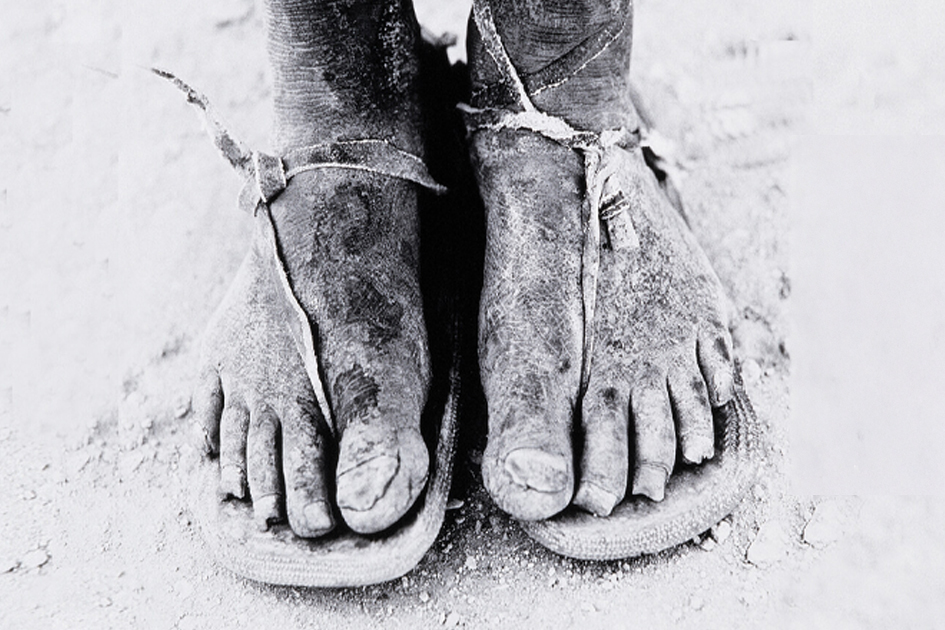If you could pick one commendable quality or trait you’d like to be known for, what would it be? As Christians, we desire to be characterized by virtues like honesty, integrity, moral excellence, loyalty, or compassion, but how many of us aspire to be humble? In a society that promotes power and ambition, humility is not highly valued. In fact, it is often thought of as being equivalent to weakness and cowardice.
 Photo by Getty Images/Corbis RM Stills
Photo by Getty Images/Corbis RM Stills
None of us would describe Jesus as weak, yet He says of Himself, “I am gentle and humble in heart” (Matt. 11:29). Humility is the opposite of pride and could be defined as lowliness of mind, based on a proper and godly perspective of oneself. The goal is to see ourselves as God does and accept whatever place He has for us.
We must also remember that a person’s position in life is not a measurement of how humble he or she is. An influential job or great wealth doesn’t automatically mean someone lacks humility any more than poverty or a lack of prominence guarantees a person is modest. A humble spirit is an internal quality of the soul that God produces in His children by the power of the Holy Spirit.
In fact, humility is essential for salvation. No one comes to God and says, “Lord, this is Your lucky day; I’m coming to be saved.” That kind of proud attitude will never work. Everyone who’s truly been saved has come to God with a contrite spirit, confessing that he or she is a sinner in need of forgiveness. A humbled person has nothing to offer the Lord except repentance and faith in Christ.
By examining Christ’s attitude, we learn what true humility looks like and how we, too, can learn to walk humbly with God:
Jesus let go of what was rightfully His—He “emptied Himself” (Phil. 2:7). Our earthly limitations make it difficult to comprehend what Jesus left behind when He came to earth. As a member of the Trinity, the Son has the same nature, attributes, and power as the Father and the Holy Spirit. Yet He didn’t cling to His equality with them or to His rights of godhood. Rather, He left the blissful perfection of heaven to come as the Savior of humankind.
But Jesus never surrendered His divinity. Rather, He accepted the limitations of humanity, veiled His majesty and glory, and voluntarily limited the use of His divine privileges and prerogatives (Phil. 2:6). Our Savior chose to live in obedience to the Father’s will with complete reliance on the Spirit’s power.
Jesus was “made in the likeness of men” (Phil. 2:7). The sovereign Ruler of the universe came to earth as a baby, totally dependent upon others to care for Him. The Creator of all things took on a human body and nature yet was without sin. No one could tell by looking at His external appearance that God had come to live among humankind.
He took the “form of a bond-servant” (Phil. 2:7). Stepping down from heaven to become a man was a tremendous condescension, but the Son of God kept lowering Himself. He didn’t come as a king or ruler, but as a commoner. The lowest slave in a household was the bond-servant, and he did the most menial tasks. Jesus told His disciples that He did not come to be served but to serve (Mark 10:45), and He even demonstrated this by washing their feet, a task they felt was beneath them (John 13:3-5).
Jesus “humbled Himself by becoming obedient to the point of death” (Phil. 2:8). Christ always carried out the Father’s will, and His ultimate act of obedience required dying for the sins of the world (1 Peter 3:18). No one was going to take His life; He was going to lay it down on His own initiative, in compliance with the Father’s command (John 10:17-18).
Jesus’ death on the cross was supreme humiliation. Crucifixion was a slow, agonizing way to die and was reserved for the most despicable criminals. Jesus hung there disrobed between two lawbreakers and was mocked and reviled by a crowd as He bore the consequences of sin on behalf of humankind.
Humility is what God desires for us. The Lord has shown us the attitude we need to have if we’re to follow Him faithfully. Too often, we focus on our wants—protection, provision, guidance, love, assurance, and blessings—which are all good, but He wants to develop Christlike humility in us. This means we have to do an honest self-evaluation and ask Him to show us where we are prideful. We’ll probably discover things about ourselves that we don’t like, but the One who reveals them to us has the power to transform us. As we look at the example Christ set for us, we should consider how we measure up to His attitude of humility, by asking:
Do my goals in life focus on self-advancement?
Do I hold tightly to my own rights, privileges, desires, or ways?
Am I willing to empty myself of these rights and preferences and lay them down in obedience to God?
How often do I lower myself to do things that seem beneath me?
Do I consider what I can do to serve someone else, or am I simply looking out for myself?
Greatness begins with humility. No one has ever humbled himself more than Jesus, and for this reason “God highly exalted Him, and bestowed on Him the name which is above every name, so that at the name of Jesus every knee will bow” (Phil. 2:9-10). Self-promotion may seem like the path to importance, but it leads only to ultimate humbling by God.
When the disciples were arguing about who was the greatest, Jesus told them, “Whoever wishes to become great among you shall be your servant” (Matt. 20:26). God is far more interested in a spirit of humility than in the great works we can do for Him. Our goal should be to place ourselves under His mighty hand and trust Him to “exalt [us] at the proper time” (1 Peter 5:6). Like Christ, we may not see the exaltation until heaven, but when we finally stand before our heavenly Father, what a joy it will be to hear Him say, “Well done, good and faithful servant” (Matt. 25:23 NKJV).


